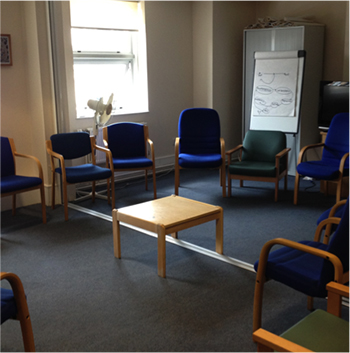
The best substance abuse program is one that meets your needs, providing the high level of care you need to recover from your addiction. However, depending on your individual situation, your needs might be very different from the next person’s. Learn about the different types of substance abuse programs to find the option that best suits your treatment needs.
While substance abuse programs generally fall into three main categories, all of these programs start with detoxification or medically managed withdrawal. Though this first step to recovery might seem like the hardest part of overcoming your addiction, your dedication to the treatment program that follows is what determines your ability to stay sober.
Long-term residential treatment provides 24-hour care, with the patient’s total stay typically lasting between 6 to 12 months. Though medical care is also provided, most residential treatment centers provide a “therapeutic community” model as opposed to a stark medical setting.
In long-term residential treatment, patients receive intensive therapy to address their personal struggles and underlying issues that led to the addiction. The patients are also part of a supportive community in which they re-learn how to function in society.
Some benefits of residential treatment include:
Short-term residential treatment programs provide similar or identical care as a long-term treatment program, but in a condensed format (most patients stay between 3 and 6 weeks). As with long-term residential treatment, individual and group therapy is a key component of this type of treatment program.
Outpatient treatment programs include individual and group therapy on an outpatient basis. Patients that have received residential treatment are typically advised to attend outpatient treatment to help support their continued recovery. Support groups such as Alcoholics Anonymous (AA) and Narcotics Anonymous are also recommended during outpatient care.
In some cases, people suffering from addiction receive outpatient care without ever participating in residential treatment. Though this type of care is not as intensive as inpatient care and does not provide the round-the-clock support offered by residential programs, outpatient treatment is certainly better than no treatment at all.
Before putting your trust in just any rehab facility, we advise you to learn all you can about the clinic in question. This resource from the National Alcoholism and Substance Abuse Information Center (NASAIC) is helpful for ruling out shady facilities that make unsubstantiated claims: National Alcoholism and Substance Abuse Information Center (NASAIC): The Ten Warning Flags of an Untrustworthy Rehab Facility
For more information on the specific qualities you should look for in a treatment center to find the best substance abuse program for yourself or a loved one, please read our recent blog post on this subject, What to Look For in a Utah Drug Treatment Center.
